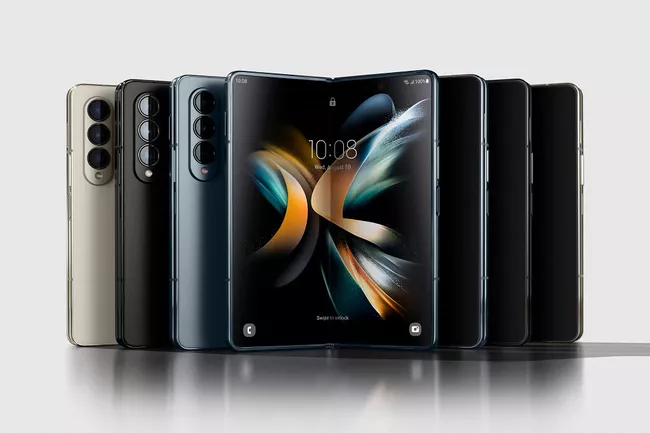
Apple might not agree, but folding phones have a lot to offer.
Experts say that while you might not have one yet, a foldable phone could be in your future. And there’s a lot to look forward to.
With Samsung’s recent announcement of not one, but two new foldable phones, it’s the big player in a market that’s still taking shape. That is to say that Samsung is one of a handful of companies offering foldable phones for sale in the country, but experts expect that to change soon enough. Apple will surely join the fray, and not before time.
“More than anything else, foldables reintroduce an element of fun that was missing in the handset industry in the last five years,” Harish Jonnalagadda, a senior editor at Android Central, tells Lifewire via WhatsApp message. They point to the fact that smartphones have looked largely the same for some time.
The Case for Bendy Phones
Once little more than science fiction, you can now go to a store and walk out with a phone that folds in the middle. The Galaxy Z Fold 4 and Galaxy Z Flip 4 are now the fourth generation of Samsung’s foldables, a rate of iteration that has allowed Samsung to build on its initial success and improve on its failures.
Foldable phones generally come in two flavors: A phone similar to the flip phones of the early 2000s, like a traditional smartphone that folds in the middle to become half the size. Or something more akin to a small tablet that can close and turn into something the size of a traditional smartphone. With the second type, buyers get tablet-like apps and improved multitasking, but in a form factor, they can take anywhere.
“There’s the fact that they’re better for portability; the ability to fold a screen in half is highly convenient. Or in the case of the Galaxy Z Fold 4, having a device with a fold-out screen that rivals small tablets is highly desirable for multitasking and productivity,” adds Jonnalagadda. Samsung caters to people who want both.
The result is a popular phone pairing, with two updated models likely to increase traction in a market that saw 2.2 million foldable devices ship in the first quarter of 2022. That might not sound like a lot compared to the hundreds of millions of iPhones Apple sells, but it’s a big deal.
Of those 2.2 million foldables, Samsung’s Galaxy Z Fold 3 accounted for more than half—51% of all foldable phones sold in the quarter carried that name. That success meant Samsung controlled 74% of the market—a market in which it’s the biggest fish of all.
Strong deals aren’t harming Samsung’s sales, either. Windows Central’s Daniel Rubino recently noted that upgrading to a new Galaxy Z Flip 4 would cost just $99. A deal he called “absurdly good.” Others have reported similarly impressive upgrade offers directly from Samsung, with carriers also offering deals on contracts.
Apple’s Waiting Game
Apple is the obvious name missing from the foldable market so far, although rumors continue to swirl that it will launch a folding iPhone of its own soon enough. We might have to wait until 2025 for it to happen, but it’s a market Apple will likely be unable to resist forever.
The reasons customers might want to own a folding iPhone are many and varied, and they’re the same reasons that people who own foldable Android phones love them so much.
There’s the fact that they’re better for portability; the ability to fold a screen in half is highly convenient.
iMore senior editor Christine Romero-Chan previously made the case for a foldable iPhone, saying that wearing women’s jeans and leggings makes pocketing a big iPhone difficult. An iPhone that folded to become half its size would definitely help there, all while maintaining the premium features she’s come to rely on.
For iPhone users, the wait goes on, but Jonnalagadda says they expect foldables will “gather further momentum as other manufacturers join the fray.” Apple is the other shoe everyone is expecting to drop.
